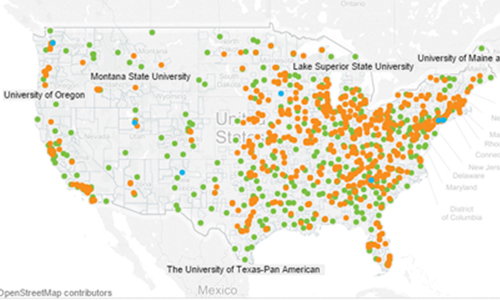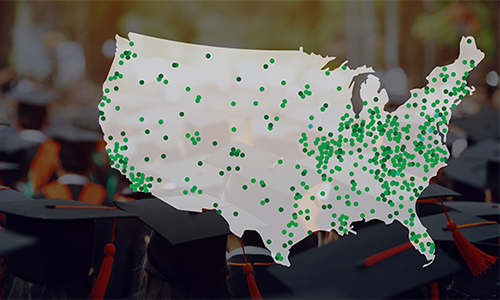Blog article
Help kids plan for the future with College Explorer
February 2020
By: Greg King

Description
In this interview, NWEA’s Greg King shares how recent updates to College Explorer make it an even more powerful tool to help students, families, teachers, and counselors navigate—and prepare for—post-secondary options.
Visit the blogTopics: College & career readiness
Associated Research

Data visualization

Media mention
Related Topics


Using data from the Applied Problems subtest of the Woodcock-Johnson Tests of Achievement administered to 1,364 children from the National Institute of Child Health and Human Development (NICHD) Study of Early Childcare and Youth Development (SECCYD), this study measures children’s mastery of three numeric competencies (counting, concrete representational arithmetic and abstract arithmetic operations) at 54 months of age.
By: Pamela Davis-Kean, Thurston Domina, Megan Kuhfeld, Alexa Ellis, Elizabeth Gershoff
Topics: College & career readiness, Early learning, Math & STEM


Measuring middle school achievement trajectories for college readiness
This study identifies students’ academic trajectories in the middle grades relative to a set of college readiness benchmarks. We apply math and reading college readiness benchmarks to rich longitudinal data for more than 360,000 students across the nation. Student-level and school-level demographic characteristics significantly predict academic trajectories.
By: Angela Johnson, Megan Kuhfeld, Greg King
Topics: Equity, College & career readiness, Middle school


This study presents a framework that uses academic trajectories in the middle grades for identifying students in need of intervention and providing targeted support.
By: Angela Johnson, Megan Kuhfeld, Greg King
Topics: Student growth & accountability policies, College & career readiness, Middle school


Study: Summer school for EL students could boost 4-year graduation rates
A summer school program for high school English learners who have lived in the U.S. for less than three years increased the number of core courses those students took that are required for graduation.
Education Dive
Mentions: Angela Johnson
Topics: Equity, College & career readiness, English Language Learners


A path to completion? The impacts of statewide articulation agreements on enrollment and attainment
This study measures the effect of adopting statewide articulation agreement policies on college enrollment, associate degree attainment, and bachelor’s degree attainment using data from the Integrated Postsecondary Educational Data Systems (IPEDS).
By: Greg King
Topics: College & career readiness


Summer credit recovery impact on newcomer English Learners
This article investigates the efficacy of a summer credit recovery program aimed at expanding high school newcomer ELs’ access to academic subjects.
By: Angela Johnson
Topics: English Language Learners, College & career readiness


Using a nationally representative dataset with thousands of measures, I employ data reduction techniques to identify a handful of variables that are the strongest predictors of college readiness and understand what they measure.
By: James Soland


